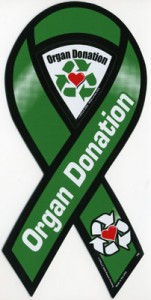 Female cancer patients interested in preserving their fertility prior to treatment may choose from a variety of options including egg banking, embryo banking, or ovarian tissue cryopreservation. While some fertility preservation techniques, such as egg and embryo baking, require a 2 to 3 week delay in cancer treatment, ovarian removal and cryopreservation allow women to proceed with cancer treatment almost immediately. After the survivor is cancer-free and wants to have a child, pieces of her ovary can be transplanted back into her body to begin releasing eggs that are unaffected by chemotherapy and radiation. Most cases of ovarian tissue transplantation are called autografts since the donor and recipient are the same. In a few rare cases, women have received ovarian tissue from other individuals, usually sisters.
Female cancer patients interested in preserving their fertility prior to treatment may choose from a variety of options including egg banking, embryo banking, or ovarian tissue cryopreservation. While some fertility preservation techniques, such as egg and embryo baking, require a 2 to 3 week delay in cancer treatment, ovarian removal and cryopreservation allow women to proceed with cancer treatment almost immediately. After the survivor is cancer-free and wants to have a child, pieces of her ovary can be transplanted back into her body to begin releasing eggs that are unaffected by chemotherapy and radiation. Most cases of ovarian tissue transplantation are called autografts since the donor and recipient are the same. In a few rare cases, women have received ovarian tissue from other individuals, usually sisters.
These rare cases raise an interesting question to ethicists at the Oncofertility Consortium; should ovarian transplantation between two women be legally treated like organs or gametes? The US government regulates organs listed under the National Organ Transplantation Act and sale of these organs is prohibited. In contrast, gametes, such as eggs and sperm, are unregulated and legally able to be purchased and sold. While ovaries are definitely organs, they also hold genetic material with the potential to become life. Oncofertility ethicist Lisa Campo-Engelstein, PhD, discusses these issues in a recent publication titled “Gametes or Organs? How Should we Legally Classify Ovaries Used for Transplantation in the USA?”
The article, published in the Journal of Medical Ethics, discusses that the intended use of the ovary should play a major part in categorizing the donation. One 30-year-old woman identified in the article lost her fertility after cancer treatment for non-Hodgkins lymphoma. Her sister donated an ovary to her so she could carry and give birth to a child. In contrast, another patient requested autotransplantation of her own ovarian tissue not to have a child but to relieve early onset menopausal symptoms. While these two intended uses of ovarian tissue are quite different, they may play roles in the legal, ethical, and insurance designations of such transplants.
In the article, Dr. Campo-Engelstein suggests that ovarian tissue should be classified as a gamete because, in either case, once ovarian tissue is donated to a recipient, it may be used to produce offspring, even if that was not the original intent. It is important to remember that these cases are quite rare and it is unlikely that ovarian tissue donation will become common. However, the Oncofertility Consortium believes it is necessary to include ethical scholars into the discussion of any emerging technology as their insights can help guide the scientific research.

